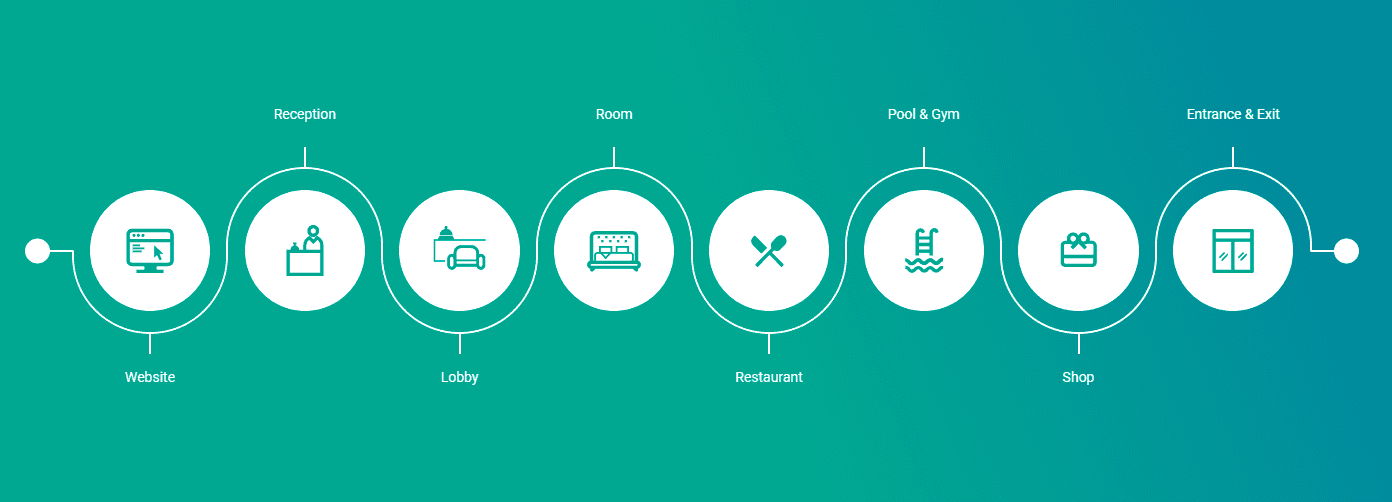Maximizing Guest Engagement and Business Success: The Strategic Role of Contact Information Collection in Hospitality
In today's fiercely competitive hospitality landscape, collecting guest contact information isn't just a routine administrative task—it's a strategic imperative that can significantly impact a hotel or short-term rental's success. Effectively gathering and utilizing this data empowers businesses to cultivate deeper relationships with their guests, personalize experiences, drive targeted marketing campaigns, improve operational efficiency, and ultimately boost their bottom line. This goes beyond simply amassing a database; it's about understanding individual guest needs and preferences to create truly memorable stays.
The Power of Connection: Why Contact Information Matters
Contact information provides the foundation for building meaningful connections with your guests. It allows you to:
- Personalize the guest journey: From the moment a guest books their stay, you can leverage their information to tailor their experience. Send personalized pre-arrival emails with helpful information about local attractions or offer customized amenities based on past stays. During their visit, anticipate their needs by knowing their preferred room type or dietary restrictions. Post-stay, follow up with a thank-you note and request feedback, demonstrating your commitment to guest satisfaction.
- Enhance marketing effectiveness: Generic marketing blasts are a thing of the past. With detailed guest profiles, you can segment your audience and create highly targeted campaigns. Imagine sending exclusive offers to guests who previously stayed during a specific holiday season or promoting spa packages to those who have shown interest in wellness activities. This personalized approach dramatically increases engagement and drives conversions.
- Streamline operations and communication: Direct communication with guests facilitates seamless operations. Quickly address special requests, resolve issues promptly, and provide real-time updates about any changes or disruptions. This proactive approach enhances guest satisfaction and builds trust.
- Cultivate loyalty and repeat business: Staying connected with guests after their stay is crucial for fostering long-term relationships. Regular newsletters, personalized birthday greetings, exclusive offers, and loyalty program incentives keep your brand top-of-mind and encourage repeat bookings. Transform satisfied guests into brand advocates who will recommend your property to friends and family.
- Unlock valuable data insights: Analyzing collected guest data provides valuable insights into demographics, preferences, and booking patterns. This information informs strategic decisions about pricing, service offerings, marketing initiatives, and even future property improvements. For example, identifying a trend of families booking during school holidays might prompt you to create special family packages or activities.

Who Benefits from Contact Information Collection?
Strategic contact information collection creates a win-win situation for all stakeholders:
- Hotel managers/owners: Gain a comprehensive understanding of their target audience, enabling data-driven decisions regarding pricing, service offerings, and marketing strategies. Measure the effectiveness of marketing campaigns and identify areas for improvement.
- Frontline staff (reception, concierge, etc.): Access to guest profiles empowers staff to provide exceptional, personalized service. Anticipate guest needs, offer tailored recommendations, and resolve issues efficiently, enhancing the overall guest experience.
- Marketing teams: Develop highly targeted and personalized marketing campaigns, maximizing ROI and driving direct bookings. Segment audiences based on demographics, past behavior, and preferences to deliver relevant and engaging content.
- Revenue managers: Analyze booking patterns and guest behavior to optimize pricing strategies and maximize revenue. Identify peak seasons, popular room types, and other trends to make informed decisions about inventory management.
- Guests: Experience a more personalized and seamless stay, with tailored recommendations, exclusive offers, and proactive communication. Feel valued and appreciated, leading to increased satisfaction and loyalty.
Strategies for Effective Contact Information Collection
Collecting guest information should be a seamless and positive experience. Here are some effective strategies:
- Optimize the booking process: Integrate contact information fields seamlessly into your website or booking platform. Ensure the process is user-friendly and mobile-optimized. Offer incentives like discounts, complimentary upgrades, or early bird specials to encourage guests to share their details.
- Implement digital and physical registration forms: Utilize digital forms on tablets or kiosks for efficient data capture at check-in. Offer a quick and easy way for guests to provide their information. For guests who prefer traditional methods, provide well-designed physical forms.
- Leverage Wi-Fi access: Offer complimentary Wi-Fi access in exchange for contact information. This provides a valuable service to guests while allowing you to collect valuable data.
- Engage on social media: Encourage guests to follow your social media channels and participate in contests or promotions that require contact details. Run targeted ads on social media to reach potential guests and capture their information.
- Implement post-stay surveys and feedback forms: Send personalized thank-you emails and feedback requests after a guest's departure. Use these opportunities to collect additional information and encourage guests to join your loyalty program or subscribe to your newsletter.
- Offer a loyalty program: Incentivize repeat bookings and data collection by offering a comprehensive loyalty program. Provide exclusive benefits and rewards to members who share their contact information.
(Suggested Image: A guest using a tablet to check in at a hotel kiosk.)

Timing and Context are Crucial
The timing of your request is crucial for maximizing data collection. Focus on moments when guests are most engaged and receptive:
- During the booking process: Guests are already invested in their stay and more likely to provide information.
- At check-in/check-out: Confirm and update existing details and offer incentives for sharing additional information.
- During their stay: Promote loyalty programs and collect feedback through digital touchpoints like in-room tablets or mobile apps.
- Post-stay: Send personalized follow-up emails and feedback requests.

Data Privacy, Security, and Transparency
Protecting guest data is paramount. Be transparent about your data collection practices and ensure compliance with all relevant data protection regulations (GDPR, CCPA, etc.). Implement robust security measures to safeguard guest information from unauthorized access or breaches. Build trust by demonstrating your commitment to data privacy.
Strategic contact information collection is a powerful tool for hotels and short-term rentals. By prioritizing this practice and using the data responsibly, you can create exceptional guest experiences, drive business growth, and build a loyal customer base. In today's competitive market, this is not just an advantage—it's a necessity for long-term success. By focusing on building relationships and understanding your guests' needs, you can create a truly personalized and memorable experience that sets you apart from the competition.



